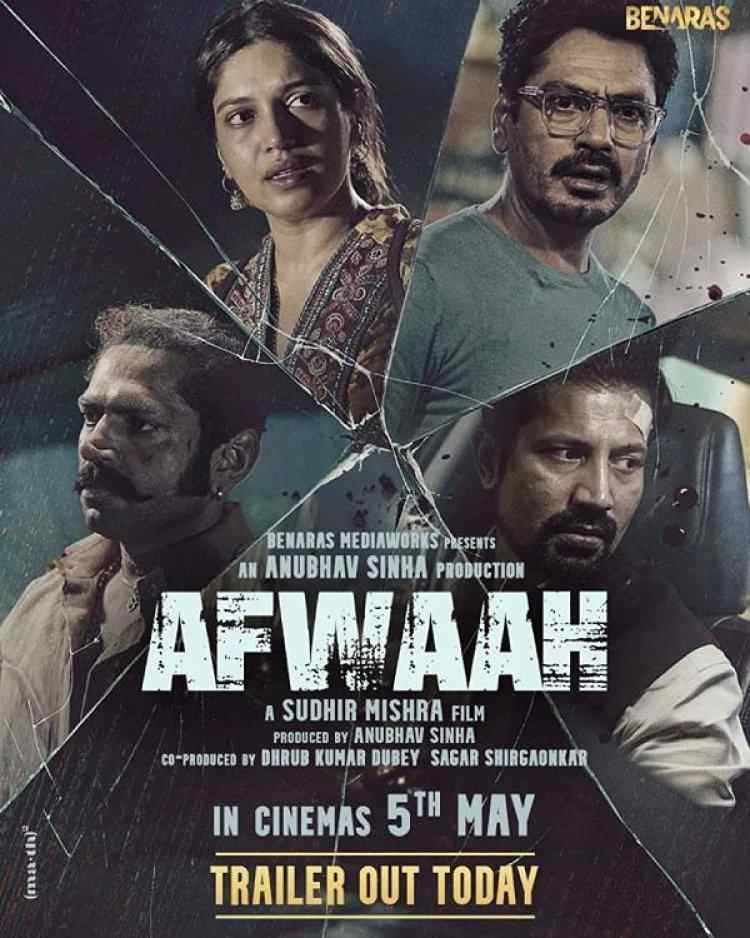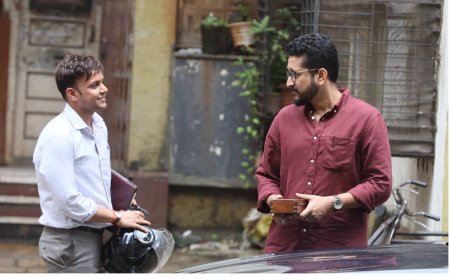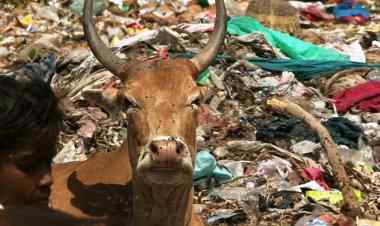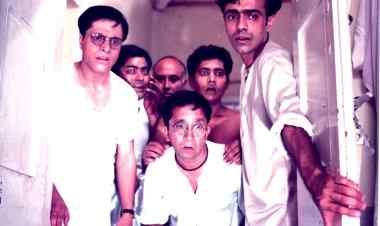Film Review: AFWAAH – MIRROR TO TODAY’S AUDIOVISUAL JOURNALISM
Dr. Shoma A. Chatterji writes, " 'Afwah' proves once again that the “independence” of the media is a thing of the past. "

Dr. Shoma A. Chatterji takes a critical look at the film, Afwaah by Sudhir Mishra.
The basic function of journalism is to inform, educate, entertain and initiate or reflect social change. The responsibility of every journalist is to write keeping the principles of honesty, integrity and responsibility towards readers, towards the organization one is writing on behalf of and most importantly, towards oneself. Do these exist today? If they do not, what forms can they take to twist news towards favouring some and brick batting others? Who, precisely, is in control of the media in India today? Is it the democratic government which constitutionally has granted Indian citizens the fundamental right to freedom of expression and the freedom to resist? Is it the newspaper management that is responsible for ‘manufacturing” stories and presenting these as ‘news’? Are the corporate giants pulling the financial strings of the given news media? Or is it the political party in power which is the master puppeteer pulling the strings of the journalist-puppets?
These, and many more questions are raised in Sudhir Mishra’s latest offering Afwaah. Afwaah means “rumour” and this film throws up a good example of how political interests can “create” news out of non-news in order to protect and enhance the political potentials of a high-born candidate placing innocent victims in danger for their lives.
Sudhir Mishra is known for his powerful celluloid essays on power-politics and Afwaah is no exception. He began his directorial career with Yeh Woh Manzil To Nahin (1987) which had a strong political content and won the National Award the following year for the Best First Film of a Director. He has made a comeback with a theme that focuses on the misuse of audiovisual journalism for political ends that could destroy the lives of innocents not linked at all to the fake news.
He chooses Rajasthan as the backdrop. An educated young girl, Nivi (Bhoomi Pednekar), the daughter and heir of Hukum, who heads the political party that has decided to use Vicky (Sumeet Shah) as Hukum’s successor as Hukum is very sick is engaged to be married to Vicky. But Vicky uses his gang of goons to create terrible chaos in different parts of the city headed by his chief goon Chandan, (Sharib Hashmi) who slaughters an innocent Muslim butcher in his own shop.
Nivi, a strong woman with a mind of her own, after watching the terrible news on TV channels, decides to cancel her engagement to Vicky. She runs away when her father refuses to support her decision. Nivi’s decision to cut off the engagement hurts Vicky’s male ego and possibly his electoral prospects too. So, he asks his men to search and find their ‘bhabhisaa’ Nivi. This leads to a terrible chase with Vicky’s entire gang of goons following Nivi wherever she goes.
Rahab (Nawazuddin Siddiqui), a successful NRI businessman who has just flown in from the US to attend his wife’s important meet at the Literary Festival organized some miles away, sees Nivi being surrounded by goons and tells her to step into his car and he will drive her to the LitFest and then leave her. In the meanwhile, the news of Chandan having butchered an innocent man to death badly hampers the electoral chances of Vicky. So, his media advisor suggests they turn the negative news to something different.
Though Rahab and Nivi do not know each other at all, this escapade to rescue Nivi is twisted and turned by the audiovisual media that shows that Nivi has run away with a man from a different faith and the chase turns deadly for both Nivi and Rahab as this is now a case of “Love Jehad.” Though Nivi and Rahab are convinced of their innocence, thanks to the media, no one believes them. A party colleague suggests that Chandan whose family has been serving Vicky’s family for three generations, must be killed to kill the earlier story of the butcher’s killing. Chandan goes into hiding and slowly discovers that he too, is a target of Vicky’s men who have been instructed to kill him. But the killer kills the wrong man and this leads to further chaos.
Afwah is like an endless series of chases, killings and hard action all happening in a breathless pace confusing the audience more than clearing their confusion. The first half is quite dynamic and full of action but when this continues post-interval, it not only becomes repetitive but also leads to a very melodramatic anti-climax. When Rahab and Nivi finally reach the Lit Fest in which his wife is playing a significant role, the Indian organizers refuse to open the gates for fear of political upheaval leaving these two to find their own rescue strategies. While they are desperately trying to find a shelter, the camera keeps cutting into the glitzy and glamorous dance and song programmes inside the Lit Fest in a heritage palace. This marks a very melodramatic end to a story which had wonderful possibilities of a powerful closure which does not happen at all. If this was done to provide a contrast, it fails to work.
The colours and the loud music of Rajasthan plus the visuals of colourfully attired women across the streets could have been either dimmed a bit or used with judicially to add to the aesthetics and the social statement the film is trying to make. But this has not been done. Bhoomi and Sumeet are very good and so is Chandan scared for his life but it is Nawazuddin Siddique who hardly has much to offer as his is just a one-dimensional role with no colour or shade.
Afwah proves once again that the ”independence” of the media is a thing of the past. The Press defined as the “Fourth Estate” in a democracy has now been swallowed wholesale by the three instruments of the Government namely, the executive, the legislature and the judiciary. These facts give rise to the question about whether the media has now turned itself into a commodity that can be bought through auction by the highest bidder, more often one of the corporate giants, for the highest price much like shares and stocks are sold and bought at the stock exchange. Political parties are hand-in-glove as the corporate giants supply them with the funding. The electronic and the digital media also depend on sponsorships and advertisement revenue which places “invisible” demands on them to project their own business interests through interviews of the top bosses, pep talks across the news channels and much more. Afwab is a solid example of this and from this perspective, it is a hard-hitting film indeed.
***
What's Your Reaction?


































































